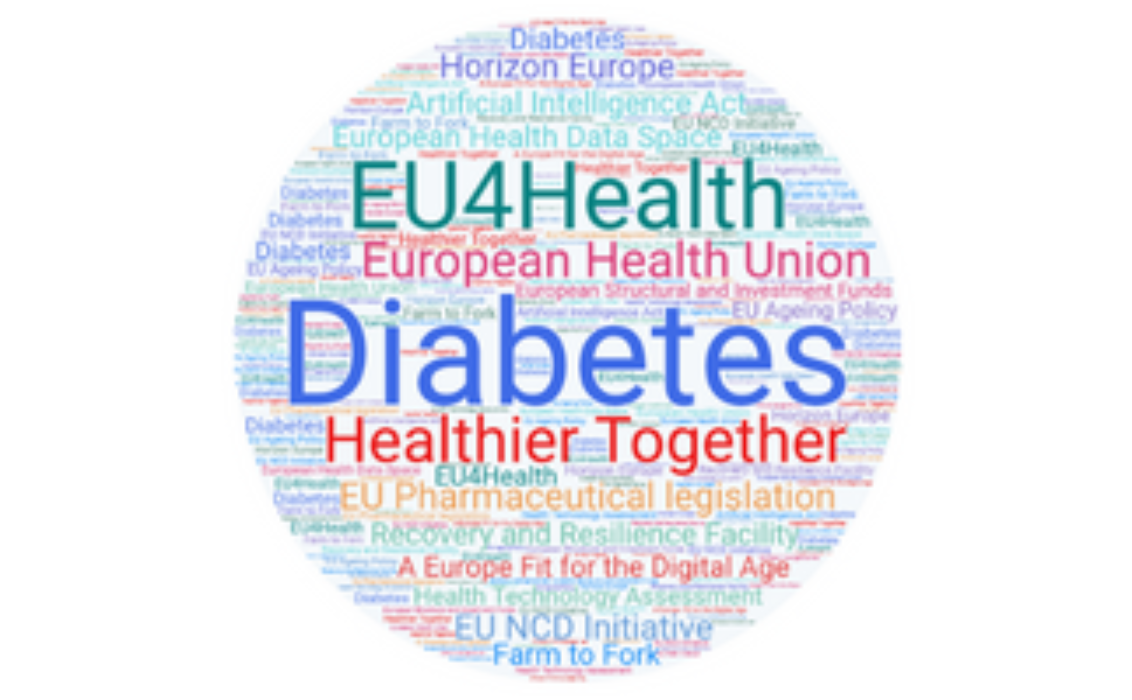The third stakeholder meeting on the ‘Healthier together – EU Non-Communicable Diseases Initiative’ took place on March 17, 2022 and focused on the cardiovascular and diabetes strands. DG SANTE presented an update on the current version of the EU NCD Initiative document that incorporates comments and recommendations from Member States (MS) and international organisations as well as ongoing feedback from the stakeholder group.
Comments from MS
MS welcomed the approach and progress of the document. Priorities such as the preparation of national non-communicable disease plans, integrated care and patient pathways, and screening were discussed. MS expressed a preference for a single Joint Action covering both CVD and diabetes. A working group will be created composed of MS experts interested in preparing the Joint Action on CVD and Diabetes.
Next steps
- Joint Action on CVD and diabetes – April (tbc).
- MS Sub-group meeting – 8 April (discussion on respiratory diseases, and mental health and neurological disorders).
Comments from stakeholders
Stakeholders emphasised the need for a holistic and integrated approach (prevention in all policies; coordinating primary and secondary prevention, primary care and specialised care; promoting patient-centred pathways accounting for co-morbidities). Stakeholders also welcomed synergies between the CVD and diabetes strands, while emphasising the need to leave space for disease-specific work. Other areas of discussion focused on countries to develop and coordinate national CVD and diabetes plans; plans for population and opportunistic NCD screening; targeting early detection in high-risk individuals, etc.
Next steps
- Stakeholder group meeting – 27 April (discussion on respiratory diseases, and mental health and neurological disorders).
- Stakeholder group meeting – 3 June (discussion on health determinants).
- Closing meeting – 22 June (launch of the final working documents + toolkit).
The importance of sharing of best practices
DG SANTE reiterated the importance for all stakeholders to submit examples of best practices. The Directorate has made it a priority to identify, disseminate and transfer best practices in order to promote health, prevent disease and help achieve Sustainable Development Goal 3.4 to reduce premature mortality from non-communicable diseases by one-third by 2030 and the nine UN/WHO global voluntary targets for health. Actions can also help address the social determinants of health and health literacy, effective and efficient screening, multimorbidity, and improvements towards person-centred, integrated care. Best practices can focus on the entire patient pathway from prevention of diabetes to treatment and management, as well as on improving the quality of life of people living with diabetes. DG SANTE will prioritise actions that additionally address health inequalities and/or involve integrated ‘Health in All Policies’ approaches.
We encourage our Member Associations to act on the initiative now and share with IDF Europe their best practices as well as novel and promising approaches, for us to incorporate in our response to the stakeholder consultation. This will ensure that the action on diabetes is ambitious and incorporates all the priorities of the diabetes community.
Alternatively, Member Associations can also share their best practices via the Best Practice Portal by 15 May 2022. Submitted practices to the portal will be evaluated against the best practice criteria adopted in the Steering Group on Health Promotion, Disease Prevention and Management of Non-Communicable Diseases. A best practice is defined as ‘a relevant policy or intervention implemented in a real life setting and which has been favourably assessed in terms of adequacy (ethics and evidence) and equity as well as effectiveness and efficiency related to process and outcomes. Other criteria are important for a successful transferability of the practice such as a clear definition of the context, sustainability, intersectorality and participation of stakeholders.’
For this assessment of best practices, the criteria have been grouped into exclusion, core and qualifier criteria.
- The exclusion criteria will assess relevance, intervention characteristics, evidence and theory base and ethical aspects.
- The core criteria will assess effectiveness and efficiency of the intervention and equity.
- The qualifier criteria will assess transferability, sustainability, participation and intersectoral collaboration.
We encourage stakeholders wishing to submit via the portal to carefully read the criteria, as well as the submitter’s guide (available HERE), before submitting the practice and ensure that sufficient details about the practice are provided.



